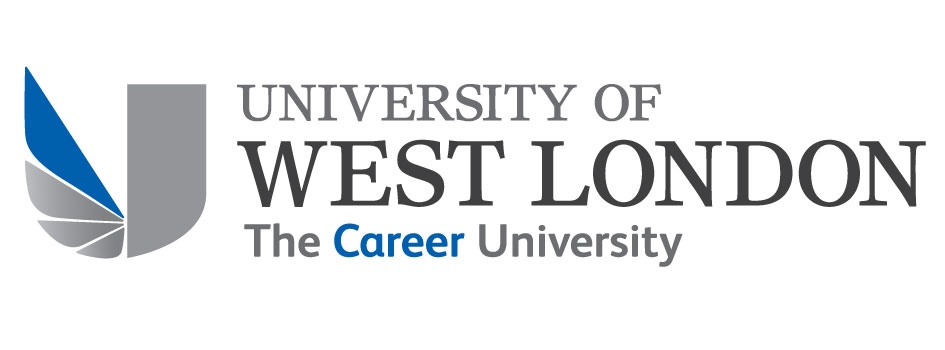The importance of research in schools
Research is too often seen as an academic activity conducted by others and is not always seen as a concept respected by managers, practitioners, and policymakers. But perhaps it should be. Indeed, I believe that educational professionals are always learning, exploring, analysing information, adapting their behaviours according to what they receive and looking for improvement; therefore, critical enquiry is a key component of education. All of this is research whether they want to call it that or not. But have you ever imagined the world of education without research? If education is not based upon research and evidence, then, if there is no underpinning research base, on what would the teaching and learning experience be based? Education without research runs the risk to being based upon one or more of the followings: dogma, theory, ideology, convenience, and prejudice (Field, 2011). Education is a political football and can be used for political purposes; however, for those involved in teaching, educational leadership, and educational research, there is also a moral obligation which means it is wrong to follow dogma blindly. Education should serve, liberate and promote equality of opportunity and democracy. Likewise, following an ideology can be dangerous. Teachers have a social responsibility to develop active citizens. To follow an ideological route to guide one’s practice restricts choice, which is the opposite of the real purpose of education. Also, basing our practice solely on our own learning experiences without reflection, means putting education at risk of being outdated and not being forward looking.
Theories come and go, and no single theory can function on its own. Learners and learning are complex, and success is always influenced by other factors including family background, social background, age, gender, personality, location and so forth. Theories need to be combined, tested, and challenged, in order to allow us to adapt to suit local and personal environments. Research enables us to challenge the established system and potential political biases and base decisions upon evidence which is morally sound.
Research can change the system and can impact on the practice of education itself. Research isn’t only done on schools - it is also done in schools. According to Mohr et al. (2015) research can assist teachers to understand what works and why; what short- and long-term implications there are; provide justifications and rationale for decisions and actions; help to deal with the unexpected, identify problems and drive improvement. When teachers do research, they seek to be rigorous and respectful to the tradition of research; however, their research is not distanced but it is rather passionate about its utility to better shape their own classrooms and to influence others as well. This collaborative knowledge building aims to transform schools from inside out instead of the other way around. Since some educators believe that this is the difference between real or superficial change.
The great importance of research in enhancing the future of education determined my PhD topic. I decided to use case studies from schools (primary phase) in London to discern the relationship between educational leadership and school improvement. My aim was to develop a leadership model for the future best practice in London primary schools. Four case study schools were identified for inclusion in my project. I managed to start my research and two outstanding schools participated from West London - one academy from a multi academy trust and one maintained community-type school. But then Covid-19 changed the educational landscape.
The impact of Covid-19 on the educational landscape
Just as I was trying to find two more schools for my research project, Covid-19 emerged and shut the door firmly. Covid-19 disrupted schooling globally, devastated economic growth, and interrupted international travel. In just a short period of time Covid-19 created undeniable chaos (Hargreaves & Fullan, 2020) - a ‘supernova’ (Azorin, 2020) shaking the fabric of education. The concept of learning developed a new definition: as a remote, on-screen activity, limiting most learning to a form of online teacher support (Harris & Jones, 2020).
A report by UNESCO indicates that 1.6 billion young people have been out of school during this crisis, and virtually all schools have ‘paused’ and teaching has been re-organised (Zhao, 2020). In many countries getting children back into school has been an ongoing challenge. Schools that have re-opened have faced issues of social distancing, intensive cleaning and orchestrating all the movement around the school. In the long term, we do not know the impact, effects, and consequences of school closures, but the mental health of young people who isolated at home will be the real issue and has the potential to become a greater problem than the virus itself (Harris & Jones, 2020). Quick solutions are required in a fast-changing world, and the priority should be the well-being of students, teachers, parents, and other stakeholders involved in the reopening of school life.
In addition to the well-being issues caused by Covid-19, this pandemic has also highlighted how education inequity disproportionately affects disadvantaged people in society. For instance, as reported by Darling Hammond (2020), in the USA the pandemic has highlighted disparities in access to digital devices and the internet. When schools were closed,15% of US households and 35% of low-income households with school-age children did not have a high-speed internet connection at home. Similarly, in the UK, Harris and Jones (2020) noted that 1.9 million households have no access to the internet and tens of millions are relying on pay-as-you-go services to get access to healthcare, education, and the online benefits system. A World Bank report (2020) suggests that it is likely that Covid-19 will cause the first increase in global poverty since 1998. Its impacts on young people will be immeasurable, devastating and potentially irreversible.
In regard to education, Covid-19 has changed school leadership practices: considerably and possibly irreversibly. School leaders need new skills in collaboration and partnership with other schools, communicating a longer-term vision, and the ability to share and use new innovations. In other words, collaboration, support, and distributed leadership seem to be the key to survival. As a result of this pandemic, the pressure on school leaders working in these demanding and chaotic circumstances is relentless and the options are limited. Students, teachers and parents are waiting for ‘education as usual’ and hoping for some continuity, stability, and reassurance. But the stark reality is that this is unlikely to occur anytime soon. Meanwhile, school leaders unwillingly find themselves at a pinch point in the system. They are overly reliant on the guidance about Covid-19 from their government. Simultaneously, they are dealing with a fluid environment and staff situations where they must do much more with much less. Crisis and change managements have become essential skills that school leaders need at this time of turmoil, rather than the routine problem-solving previously needed to run an effective school. Since the speed of change, in this pandemic, is high, a high degree of trust among all stakeholders is required to act as the collective glue and ensure to that issues are addressed as they arise. All of these changes make it more important than ever for educational researchers to develop a good understanding of what is going on in education.
Educational research and Covid-19
Prior to the Covid-19 pandemic my research was on the principles of good leadership such as having a clear vision, developing others, and building capacity in schools. I intended to contribute a leadership model for future best practice in primary schools. Clearly, Covid-19 caused a shift in my research methodology. Since access to schools and school observations become almost impossible, I had to make changes in the methodological approaches used in my research. Instead of face-to-face interviews and school observations, I decided to explore the role of school leaders in the outstanding journey of schools through the virtual infrastructure of the school websites. As Bennett (2019) asserts, the website not only highlights the school best qualities and show how welcoming the school community is to all stakeholders but it can also effectively communicate the school’s vision, mission, the qualities and the offerings to each of the stakeholders. I used interview data collected before the pandemic from the two schools that were doing well (in regards to leadership) as sources to examine the language and content of the websites for schools that have been improved across London.
In conclusion, it seems that it is through research that we best develop our knowledge and understanding. Specifically, cultivating a research-based approach in our educational practices can: assist educators find solutions to particular issues arising in their classroom or school; develop their professional knowledge, skills and understanding; connect educators with sources of information and networks of professional support; encourage them to be more reflective and develop their agency, influence, and self-efficacy within their schools and more widely within the profession. Considering education has always been happening in the context of change, the implications of Covid-19 pandemic on education and research are far from obvious. While teaching and learning has been transformed into a remote and online activity, some school-based research studies have stopped or slowed down. In consequence of this pandemic, participation in research may no longer be a priority for schools and may even be perceived as another burden. The methodology of my research was affected, and it is likely that the methodology of other educational researchers will be too. Being flexible, creative and open to the people in the field helped me to resist the pressure in the journey of my PhD and enabled me to develop the alternative strategy in using the virtual infrastructure of the school websites instead of the face-to-face interviews and school observations. Others will also need to be flexible and creative in order to gain answers to the questions they pose. Overall, the lessons learnt from these troubled times are firstly, research is more than ever required to develop a good understanding of what is going on in education. Secondly, as a researcher, it is important to be open to inviting creative practice into our research approach; and finally, great educators are those who can make the complexity of change work in their favour.
References
Azorin, C. (2020) Beyond COVID-19 supernova. Is another education coming? Journal of Professional Capital and Community . Available at https://www.emerald.com/insight/publication/issn/2056-9548#earlycite
Bennett, C. (2019) A school’s website makes an important first impression . Available at https://www.thoughtco.com/schools-website-first-impression-7655
Field, K. (2011) The importance of research for education’s future . available at https://www.expressandstar.com/education/2011/06/14/the-importance-of-research-for-educations-future/
Hargreaves, A. & Fullan, M. (2020) Professional capital after the pandemic: Revisiting and revising classic understandings of teachers’ work. Journal of Professional Capital and Community , https://www.emerald.com/insight/publication/issn/2056-9548#earlycite
Harris, A. & Jones, M. (2020) COVID 19 – school leadership in disruptive times. School Leadership & Management , 40 (4): 243-247 doi: 10.1080/13632434.2020.1811479
Mohr, M.M, Rogers, C., Sanford, B. Cerino, M. MacLean, M. & Clawson, S. (2015) Teacher research for better schools , New York, and London: Teacher College, Columbia University
Zhao, Y. (2020) COVID-19 as a catalyst for educational change. Prospects , 49(1): 29-33 doi:10.1007/ s11125-020-09477-y.

